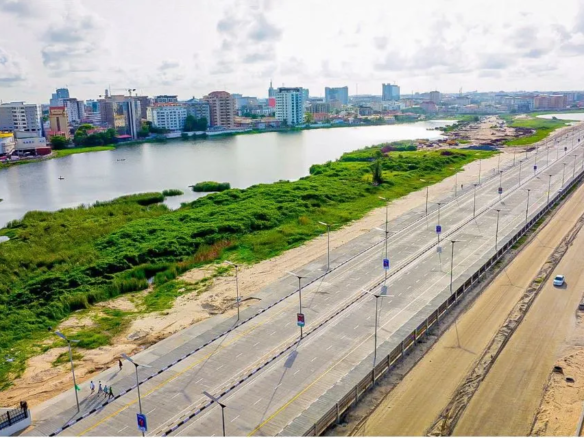Table of Contents
Introduction to Land Titles and Documents
Land titles and documents in Nigeria are legal documents that evidence the allocation, transfer, conveyance or sovereign privilege of a piece of land. They are very crucial in ensuring that the interests of both the buyers and the sellers are protected in the transactions that take place concerning land.
The type of title depends on both the ownership structure and the specific transaction involved. If you’re considering buying land, it’s important to fully understand the different documents that come into play. Owning land isn’t just about the financial purchase; it’s about being aware of the laws, policies, and responsibilities that go with it. This knowledge can help you avoid common issues like fraudulent claims, inheritance conflicts, or even the risk of the government taking the land.
The Land Use Act of 1978 created a single system of land administration in Nigeria thereby abrogating the various land tenure systems in Nigeria that was in place previously. It has now made it easy for Nigerians to gain access to land for various economic activities while it prevents excessive purchase of communal land for speculative purposes. The Act has also simplified the processes of managing and owning land.
As stated in the provisions of this Act, the ownership of any land within Nigeria’s boundaries legally lies with the state government. People, companies and other bodies are allocated such property through a structured process in which it is ensured that leasing rights are provided, with ownership rights renewable after 99 years. Land in Nigeria is categorized as either free or under government acquisition, based on this legislation.
Land Titles vs. Land Documents: What’s the Difference?
When buying land in Nigeria, you’ll encounter both land titles and documents. Think of land titles as the official proof of ownership—these are the big guns in the legal world. Land documents, on the other hand, are the supporting players, including things like receipts, contracts of sale, and survey plans.
Before you part with your hard-earned money, verifying the land title and documents is non-negotiable. This will give you peace of mind about the property’s ownership history and legality.
Key Land Titles in Nigeria
Certificate of Occupancy (C of O)
The C of O is the gold standard for land ownership proof, issued by the state government. Without it, your land could be seized without compensation. It’s a must-have for property development and transferring ownership. The C of O includes details like plot size, location, lease term, and usage purpose, usually valid for 99 years.
Right of Occupancy (R of O)
Unlike the C of O, an R of O gives you the right to use the land but doesn’t confer full ownership. It’s often granted for agricultural or residential purposes and can be revoked without compensation.
Governor’s Consent
If you’re buying land with an existing C of O, you’ll need the Governor’s Consent to make the transaction official. This keeps the government in the loop about new ownership.
Excision and Gazette
Excision is when the government releases a portion of land back to its original owners, this transfer to the traditional land owners is often documented in a gazette. This title is crucial for securing ownership rights and avoiding future disputes.
Government Allocation
Sometimes, the government allocates land for specific purposes, like real estate or corporate use. The allocation documents serve as proof of this agreement.
Freehold
A Freehold title means you own the land outright, with no government claims. It’s more common in areas like Epe, Lagos, and offers the flexibility of perpetual ownership.
Grant of Probate
Required when a landowner dies with a will, allowing executors to manage and transfer property according to the will’s terms.
Land Documents in Nigeria
These documents provide additional information or are part of the legal and administrative process but do not, on their own, confer ownership rights.
Receipt/Invoice
The receipt or invoice acts as proof that you’ve paid for the land. Think of it as a tangible record of the transaction—something you’ll definitely want to have, especially when buying land from a real estate company. It’s a crucial piece of evidence that confirms the deal actually happened.
Contract of Sale
The contract of sale is essentially an agreement between you and the seller that spells out all the details of the transaction. It’s wise to have this document prepared by a lawyer who’s part of the Nigerian Bar Association (NBA) and can affix their seal to it. This not only ensures everything is legally sound but also helps when you need to process the title documents for the land you’ve purchased.
Receipt/Invoice
The receipt/invoice shows proof of transaction and payment for the land. This is essential evidence that a transaction occurred and is an important document when purchasing land, especially from real estate companies.
Contract of Sale
The contract of sale or agreement is a document between the buyer and seller detailing the terms and agreement of the transaction. It is advisable to have it prepared by a legal professional (lawyer), who is a member of the Nigerian Bar Association (NBA), with seal affixed. For purchased land, the contract is required to process title document.
Registered Survey
A Registered Survey, also referred to as a red copy survey is a plan that outlines the size, location, and precise measurements of a property. Conducted by certified surveyors, it verifies boundaries and legal status, aiding compliance with legal and regulatory requirements. A registered survey plan is a crucial step to securing one’s property investment.
Letter of Administration
A Letter of Administration is issued by a probate court when someone dies without leaving a will, a situation referred to as dying intestate. This document grants the appointed administrator the legal authority to manage and distribute the deceased person’s estate according to the laws of intestacy.
Deed of Assent
A Deed of Assent is an important document when handling the estate of someone who has passed away. If the deceased person left a will, this document is used to formally transfer ownership of land or property to the beneficiaries listed in the will. The person named as the executor signs it, confirming that the beneficiaries have the right to inherit the property.
Deed of Mortgage
A Deed of Mortgage is an agreement where land is temporarily used as collateral for a loan. The ownership of the land stays with the borrower, but if they don’t repay the loan, the lender can take possession. The document outlines the loan amount, interest rate, repayment terms, and the consequences if the borrower fails to repay the loan. It serves as a safety net for the lender while giving the borrower access to the funds they need.
Final Thoughts
When you’re buying or investing in land in Nigeria, it’s crucial to understand the various land titles and documents involved. The more you learn about them, the more confident you’ll feel in navigating the process without running into problems like fraud, disputes, or legal hurdles. Whether you’re a first-time buyer or have some experience, knowing the legal ins and outs of land ownership can help you make smarter choices and safeguard your investment over time. At the end of the day, being well-informed isn’t just about avoiding complications—it’s about making sure your path to land ownership is clear, secure, and free from unnecessary stress.




Join The Discussion